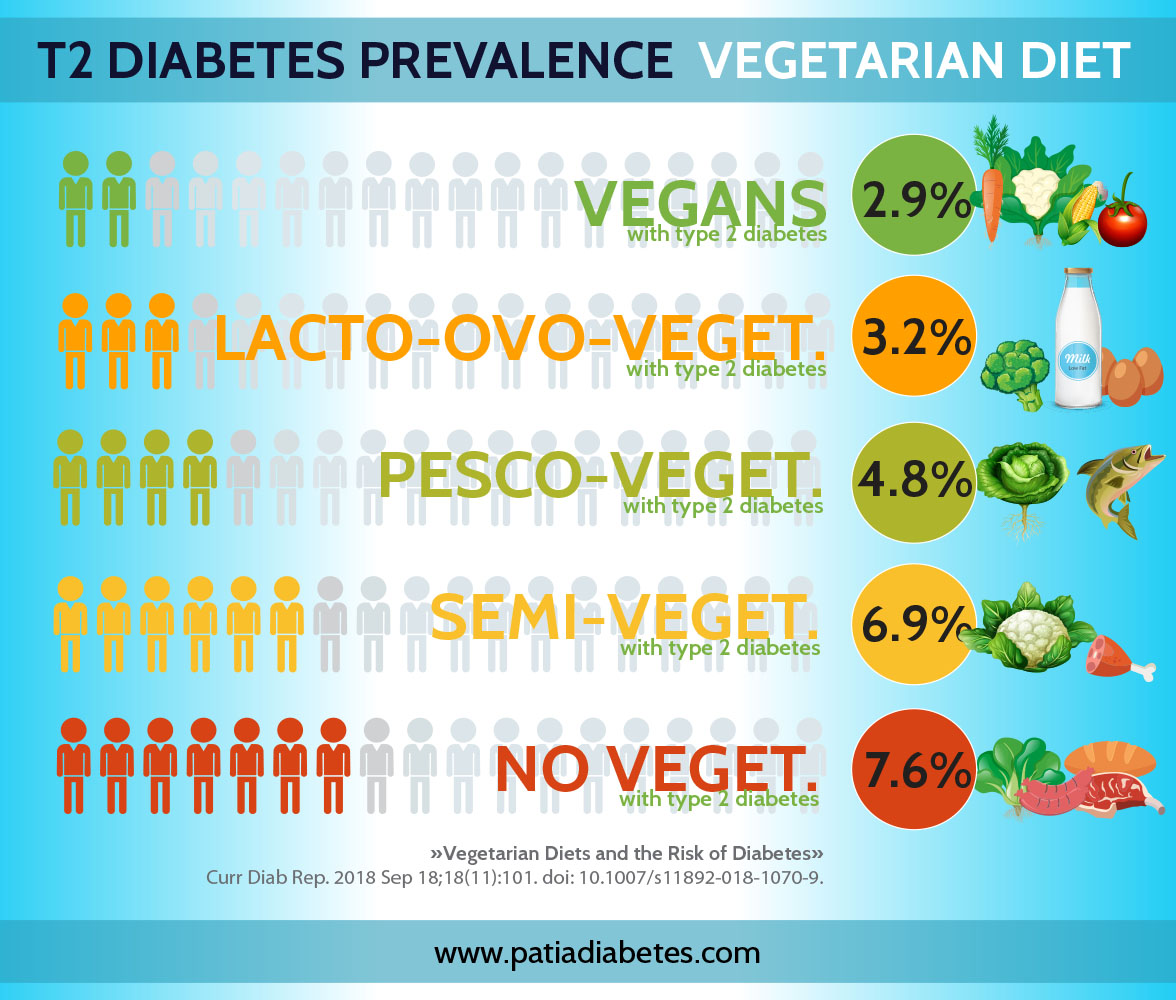Vegetarian diets lower diabetes risk
Diets with a wide presence of fresh veggies, legumes and whole grain offer an effective help for type 2 diabetes prevention and treatment
It is impossible not to think about the relationship between two current issues: type 2 diabetes and vegetarianism or veganism. On the one hand, type 2 diabetes affects more than 450 million people worldwide (it is expected to grow up to 700 million by 2045). Still, diabetes is not exactly #trendingtopic. On the other hand, vegetarianism, as can be seen in one of the fastest growing social networks, like Instagram, where just #vegan appears more than 68.5 million times.
A recent publication, the article “Vegetarian Diets and the Risk of Diabetes”, studied the relationship of vegetarian diets to type 2 diabetes. The publications on the effects of vegetarian diets on the prevention of type 2 diabetes, its treatment and its effect on possible complications were analyzed. And all this by comparing the different versions of vegetarianism.
Devasting findings
The review concluded that it has been proven that healthy vegetarian diets are a beneficial element in the prevention and treatment of diabetes. The “healthy” nuance in vegetarian diets is important. There are two tools created to measure how healthy a certain vegetarian diet is. Health indices are calculated for diets centered on vegetables. One index measures health attribute and the other measures the unhealthy ones.  The higher the index of unhealthy aspects, the higher their correlation with type 2 diabetes and vice versa.
The higher the index of unhealthy aspects, the higher their correlation with type 2 diabetes and vice versa.
In summary, the healthy diet Index considers the consumption of fruits, vegetables, legumes and whole grains to be positive (which are rich in fiber, vitamins, minerals, antioxidants, polyphenols, phytochemicals as well as low amounts of saturated and trans fats). The unhealthy index of plant-based diets accounts for the presence of foods rich in starches, refined cereals, added sugars and the absence of fruits and vegetables.
Differences between various vegetarian diets
However, it was also noted that different understandings of vegetarianism were related differently to the prevalence of type 2 diabetes in each group. More specifically, the prevalence of diabetes was found to follow an upward gradient from the lowest level, vegans, 
with 2.9%, through lacto-ovo-vegetarians with 3.2%, fish vegetarians with 4.8%, semi-vegetarians with 6.1% (those who allowed limited amounts of meat) to non-vegetarians in study, where the prevalence of type 2 diabetes was 7.6%.
Thus, diets with a wide presence of plant-based foods could be an interesting ally in the prevention and treatment of type 2 diabetes, if the choices are ultimately made from healthy foods. Something that we have already noted in the first steps of this blog in reference to the renowned Harvard´s ” plate method ” that in the end gives us a very similar message regarding food choices.
Latest posts by Juan Revenga Frauca (see all)
- Obesity recognized as a chronic disease - 13 October, 2021
- Who said you have to eat everything? - 7 October, 2021
- Diabetes and Alzheimer - 29 January, 2021









